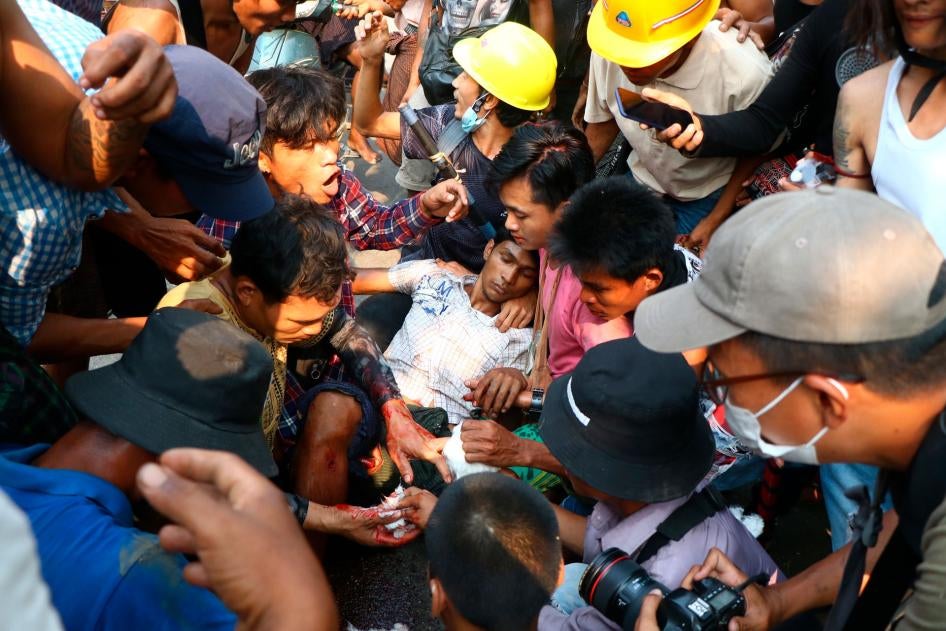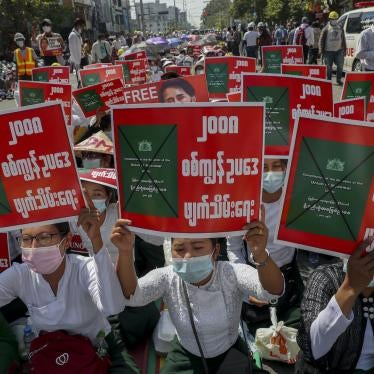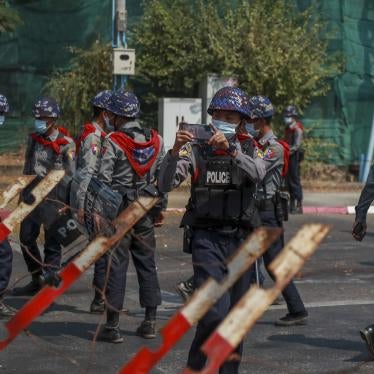Streets throughout Myanmar were stained again on Sunday with the blood of dozens of protesters gunned down by government security forces. Local media reports indicate it was the deadliest day since the February 1 coup, with many of the killings taking place in Hlaing Tharyar, a township dominated by garment factories on the outskirts of Yangon, the country’s most populous city.
But the details of the violence and other abuses have been increasingly hard to document.
As night fell on March 14, the junta imposed martial law in several townships across Yangon and began to enforce additional restrictions. At 1 a.m., as has been the case for the past month, the junta blocked access to the internet nationwide. But this time, instead of lifting restrictions in the morning, authorities continued to block mobile networks, which most people in Myanmar rely on for internet access.
It is not surprising these restrictions come after many scenes of horrific violence by security forces were documented and shared via mobile devices. The junta’s unlawful attempt to block access to this information and avoid scrutiny for continued rights violations against protesters should be condemned and the restrictions lifted.
Under international human rights standards, internet-based restrictions must be according to law, necessary, and proportionate. Blanket internet shutdowns are a form of collective punishment. They hinder access to information and communications needed for daily life, which is particularly vital during times of crisis and the Covid-19 pandemic. Shutdowns can also endanger lives in humanitarian crises, an acute concern in Myanmar where over one million people require some form of humanitarian assistance.
As security forces intensify their brutal response against people taking to the streets, the need for international coordinated action against the junta also intensifies.
Carefully worded statements by the United Nations Security Council mean little if not backed by resolutions imposing real costs on the junta. The Security Council should impose targeted sanctions on the junta leaders and military-owned companies providing direct revenue to the military and its leaders. It should immediately implement a global arms embargo on Myanmar’s military and police that includes any security assistance. Failing to do so will only embolden the military’s intent on maintaining power through the barrel of a gun.










